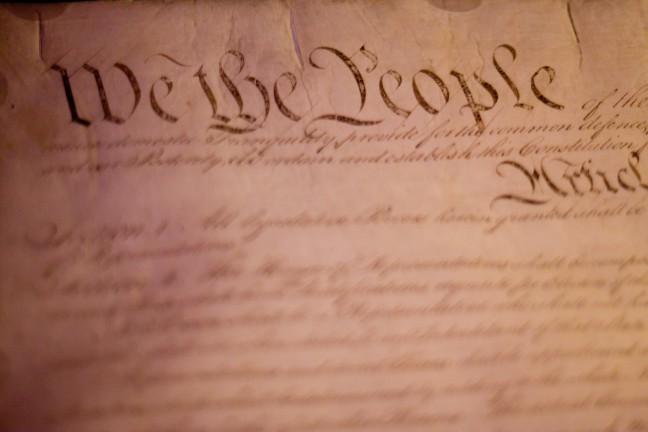As the face of U.S. currency and national monuments, the founding fathers are iconic of America, but a new historical investigation suggests the framers of the Constitution may have just been ordinary guys who didn’t know what they were doing.
Mary Bilder, Boston College law professor and University of Wisconsin alumna, tackles this question in her book, “Madison’s Hand: Revisiting the Constitutional Convention.” Her work won the Bancroft prize, one of the most prestigious awards in American History, for challenging the way most Americans view the Constitutional Convention of 1787.
There is always debate over whether or not the Constitution should be interpreted according to its “original intent” of the founding fathers, Bilder said. But she argues the founding fathers didn’t even have an intent when they were writing. Bilder said people often think of the Constitution as a great work of political theory, when in actuality, the framers “couldn’t see where they were going.”
“We have tended to think that the people who wrote the Constitution … were sort of like gods, or we make them into statues,” Bilder said. “I think [my book] reminds us that they were ordinary people, and that they were struggling to sort out how to stabilize a country.”
To come to this conclusion, Bilder compared the fourth U.S. president James Madison’s notes on the convention — a primary historical account of the event — to an official record of the proceedings kept by George Washington, which Madison had made a secret copy of.
Bilder analyzed these documents to demonstrate that Madison’s notes on the convention were significantly revised. Everyone always knew Madison’s notes were revised, but Bilder said her research indicates the revisions were much more significant than originally thought.
The book also argues that Madison carried significantly more responsibility for the protection of slavery in the Constitution than many historians talk about. She said her book attempts to put people back into the moment of the drafting of the Constitution, rather than just accepting Madison’s notes at face value.
Bilder said working in the male-dominated field of history has illustrated how important it is for women to become involved in the dialogue of the U.S. history. She said it is important for women to engage with the Constitutional Convention, so men aren’t the only ones who are a part of that history.
“When all the voices who talk about the founders look just like the founders, that’s not very helpful,” Bilder said. “It’s a moment when the country [was] founded — I don’t think that history should be written entirely by men.”
She said she is trying to write a book about women and the framing of the Constitution, but has run into challenges since there weren’t actually any women there at the convention.
Bilder said she first learned to read carefully, critically analyze text and write clearly while earning her undergraduate degree at UW. She said she carried these lessons with her her whole life.
“I’m just really feel so grateful to have been given such a great education there,” Bilder said.
After graduating from Madison, Bilder went straight to Harvard Law School where she earned her law degree. She then earned her masters and her Ph.D. from Harvard University in the field of history.
Though she is now in Boston, Bilder said she grew up in Madison.
“Honestly, I still think of myself from Wisconsin,” Bilder said.
She said whenever she loses her keys, her colleagues know they must be hers because of her UW key chain.
Bilder encouraged UW students to take on independent projects and take advantage of opportunities available to them. She also added that it’s important for students to always be critical of the world around them.
“The more we ask those questions as young people, the more we don’t assume that everything we’ve been told is necessarily historical truth,” Bilder said.

















